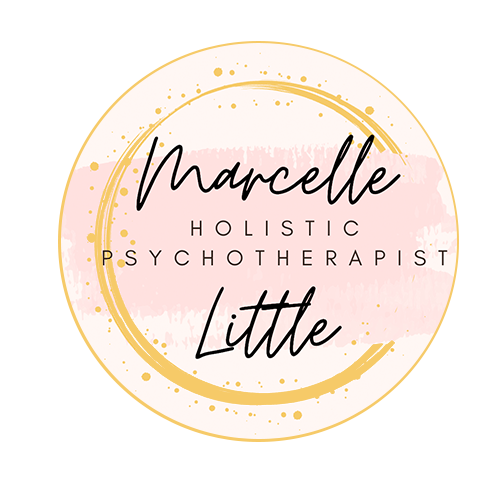Building Meaningful Connections through Individual Therapy
In a world where communication often feels rushed or superficial, deep, meaningful connection is more essential—and elusive—than ever. Whether you find yourself navigating anxiety in relationships, over-functioning in your roles, or repeating emotional patterns from childhood, individual therapy offers a grounded space to pause, reflect, and begin again—with intention.
As a therapist specializing in women’s issues, codependency and people-pleasing, relationship anxiety, and intergenerational trauma, I’ve witnessed how reclaiming emotional regulation and self-worth can transform not just how you feel, but how you connect—with your partner, your family, your community, and most importantly, yourself.
Understanding the Role of Individual Therapy
Individual therapy is more than a conversation. It’s a relational process grounded in attunement, emotional safety, and deep inner listening. It’s where old narratives can be explored and softened through compassionate reflection—and where the nervous system learns to feel at home in connection again.
Therapy can help you:
Heal attachment wounds shaped by early relationships (including the mother-daughter dynamic)
Set healthy boundaries without guilt or fear
Break free from cycles of people-pleasing and emotional over-responsibility
Cultivate emotional resilience and self-trust
In this sacred container, we work together to explore how the past informs your present, using a trauma-informed approach that integrates somatic therapy, EMDR, and parts work.
The Impact of Self-Awareness on Relationships
One of the most powerful outcomes of therapy is self-awareness—the ability to notice, name, and relate differently to your inner experience. When you begin to understand your emotional triggers and inherited beliefs (especially those around love, worth, and safety), you begin to relate to others from a place of choice rather than compulsion.
I often guide clients through practices such as:
Somatic tracking: tuning into the body’s subtle signals (inspired by Somatic Experiencing® and the Trauma Resiliency Model)
Journaling and parts mapping: noticing the “parts” of you that show up in different roles or relationships
Mindfulness-based practices: cultivating present-moment awareness and nervous system regulation (inspired by Deb Dana’s polyvagal work)
These tools help you show up more authentically—and more attuned to the emotional landscape of others.
Building Trust Through Vulnerability
Vulnerability is a strength, not a liability. Many of us learned to equate openness with danger, especially if our caregivers were emotionally unavailable, reactive, or inconsistent. Therapy helps you rewire this relational blueprint, offering a space where your emotions are not only welcomed—but honored.
As clients grow more comfortable expressing themselves in therapy, they often find the courage to do so in real life. This shift builds trust, reduces resentment, and creates the conditions for truly mutual, secure connections.
Therapeutic Tools That Enhance Communication
So many relationship breakdowns stem from unspoken needs or unclear boundaries. Therapy offers a rehearsal space for practicing:
Assertiveness skills (based on nonviolent communication)
Active listening
Boundary-setting language
Emotion regulation tools for staying grounded during difficult conversations
Through role-playing, resourcing, and inner child work, we build the muscles needed for relational repair and authenticity.
Healing Social Anxiety and Reclaiming Connection
If you struggle with social anxiety or relationship-based fear, therapy helps you untangle the internalized beliefs that fuel those responses. Together, we gently explore the origins of your fear (often rooted in early experiences of shame, rejection, or enmeshment) and develop tools for emotional regulation.
Approaches I integrate include:
EMDR to reprocess memories of relational trauma
Parts work to connect with the scared or protective parts within you
Somatic grounding to help regulate your nervous system in real time
You’ll learn to approach social situations from a place of confidence, not self-protection.
Sustaining Growth After Therapy Ends
Healing is not a one-time event—it’s a practice. One of the most empowering aspects of therapy is discovering how to support yourself long after sessions end.
You might:
Check in with your parts and emotions weekly through journaling
Return to grounding practices (like breathwork or movement)
Join a support group or women’s circle that centers emotional connection
Use guided meditations or self-regulation tools like iRest or the HeartMath Inner Balance app
These tools ensure the insights you’ve gained don’t get lost in the noise of everyday life. Instead, they become the foundation of deeper connection, more fulfilling relationships, and a richer emotional life.
When You Heal Yourself, You Heal Your Relationships
Whether you’re navigating a mother-daughter rupture, struggling with codependent dynamics, or simply longing for more secure and loving connections, individual therapy offers more than relief—it offers a roadmap to relational transformation.
In my practice, I support compassionate, emotionally intelligent individuals—especially women—who are ready to stop abandoning themselves in relationships and start living from their inner truth.
If you're curious about how therapy can support your healing, growth, and connection, you're welcome to reach out.
Ready to begin?
Book a free consultation or learn more about my specialties in anxiety, codependency, relationship healing, and women’s empowerment.
I’m Marcelle Little, a California and Florida-licensed psychotherapist (LMFT #129593, TPMF1241) and UK-registered practitioner offering online therapy for adults in California, Florida, and select European countries. My work integrates EMDR, somatic therapy, parts work, and depth psychology to help individuals heal trauma, anxiety, and intergenerational wounds.

